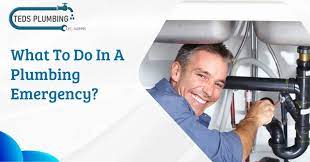Plumbing is an indispensable part of modern living, Ted’s Plumbing often taken for granted until a problem arises. From ensuring access to clean water to managing waste disposal, plumbing systems are crucial for both residential and commercial buildings. This article explores the fundamentals of plumbing, its various components, common issues, and the importance of regular maintenance.
The Basics of Plumbing
At its core, plumbing involves the system of pipes, fixtures, and fittings that transport water and waste within a building. The main components of a plumbing system include:
- Pipes: These are the channels through which water flows. Common materials used for pipes include copper, PVC (polyvinyl chloride), and PEX (cross-linked polyethylene). Each material has its pros and cons, affecting durability, cost, and ease of installation.
- Fittings: These are the connectors that join different sections of piping. They come in various shapes, such as elbows, tees, and couplings, allowing for changes in direction and connections.
- Fixtures: Fixtures are the visible parts of the plumbing system, such as sinks, toilets, and showers. They are designed to deliver water and drain waste efficiently.
- Valves: Valves control the flow of water within the plumbing system. Shut-off valves allow users to stop water flow to specific areas, while pressure relief valves help regulate pressure to prevent bursts.
- Drainage Systems: This system manages wastewater removal. Proper drainage is crucial to prevent blockages and backups, which can lead to significant health hazards.
The Importance of Plumbing
Plumbing systems are vital for various reasons:
- Health and Sanitation: Access to clean, potable water is essential for health. Plumbing systems ensure that water is delivered safely to homes and businesses while effectively removing waste. This reduces the risk of waterborne diseases.
- Comfort and Convenience: Plumbing provides comfort in daily activities such as cooking, bathing, and cleaning. Modern plumbing enables hot water access, indoor toilets, and efficient drainage, enhancing the quality of life.
- Property Value: Well-maintained plumbing systems can significantly boost a property’s value. Potential buyers often prioritize homes with updated plumbing, as they represent fewer long-term expenses and risks.
Common Plumbing Issues
Despite their importance, plumbing systems can encounter various issues. Some common problems include:
- Leaks: Leaks can occur in pipes, fixtures, and joints, leading to water wastage and potential damage to property. They may be caused by corrosion, wear and tear, or improper installation.
- Clogs: Clogged drains can disrupt the flow of water, leading to backups and overflows. Common culprits include hair, grease, food particles, and foreign objects.
- Low Water Pressure: Low water pressure can be frustrating and may result from various factors, including clogged pipes, leaks, or issues with the municipal supply.
- Running Toilets: A running toilet can waste a significant amount of water. Common causes include a faulty flapper valve, fill valve, or flush handle.
- Water Heater Issues: Problems with water heaters can range from insufficient hot water to leaks. Regular maintenance is essential for ensuring optimal performance and longevity.
The Role of Professional Plumbers
While some plumbing tasks can be tackled as DIY projects, many issues require the expertise of a licensed plumber. Professional plumbers have the training and tools necessary to diagnose problems accurately and perform repairs safely. They can also provide valuable advice on maintaining plumbing systems and preventing future issues.
Preventive Maintenance
Regular maintenance is crucial for extending the life of a plumbing system. Homeowners can take several proactive steps, including:
- Inspections: Regularly inspect visible pipes and fixtures for signs of wear or leaks.
- Drain Cleaning: Use safe methods to clean drains and avoid the buildup of debris.
- Water Pressure Checks: Monitor water pressure and address any significant changes.
- Winterization: In colder climates, it’s essential to winterize plumbing to prevent pipes from freezing and bursting.
Conclusion
Plumbing is a vital component of any building, contributing to health, comfort, and property value. Understanding the basics of plumbing systems and recognizing the importance of regular maintenance can help homeowners prevent common issues and ensure a safe, efficient water supply. When problems arise, seeking the assistance of professional plumbers is key to effective and lasting solutions. By taking care of plumbing systems, we can enjoy the many benefits they provide for years to come.

